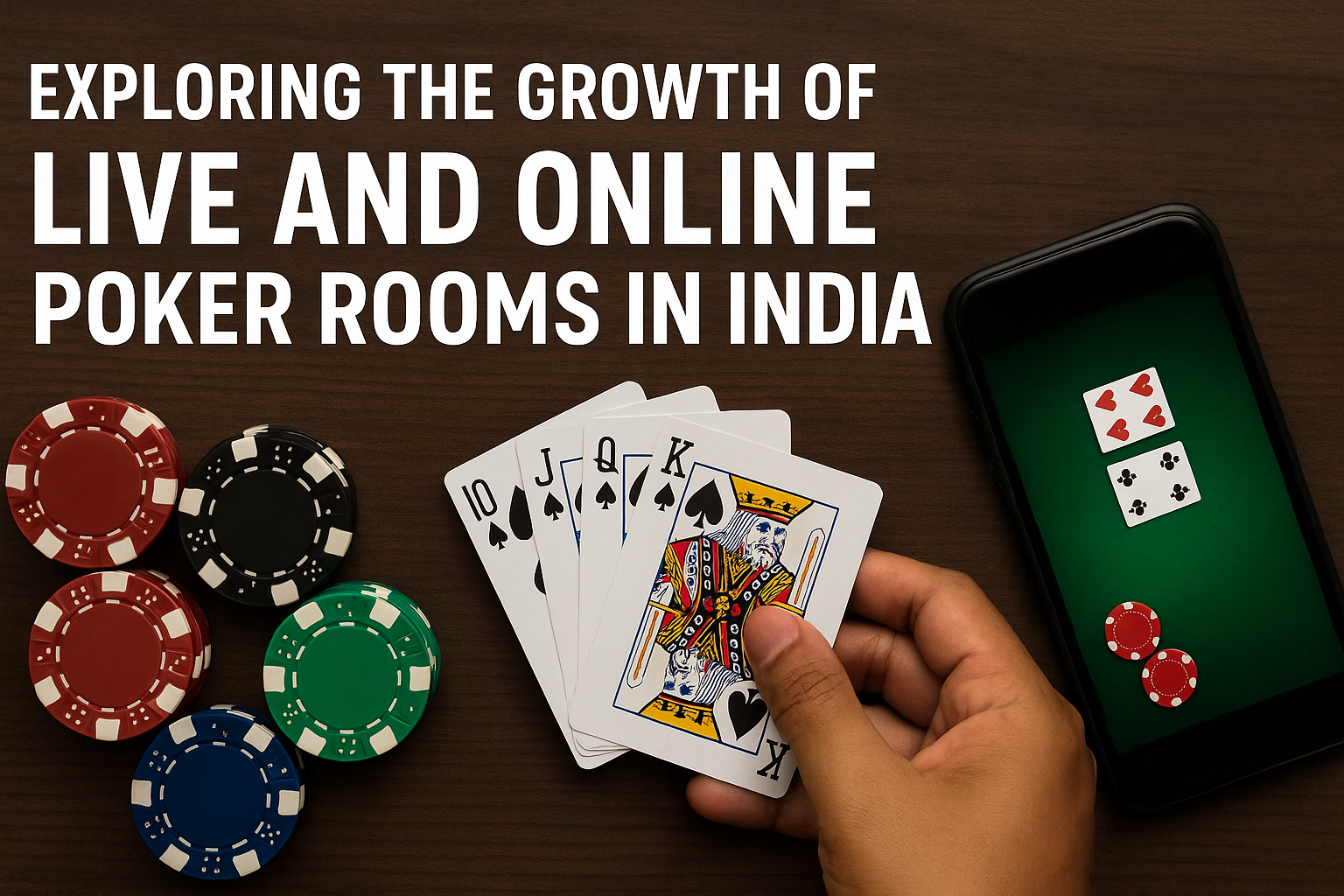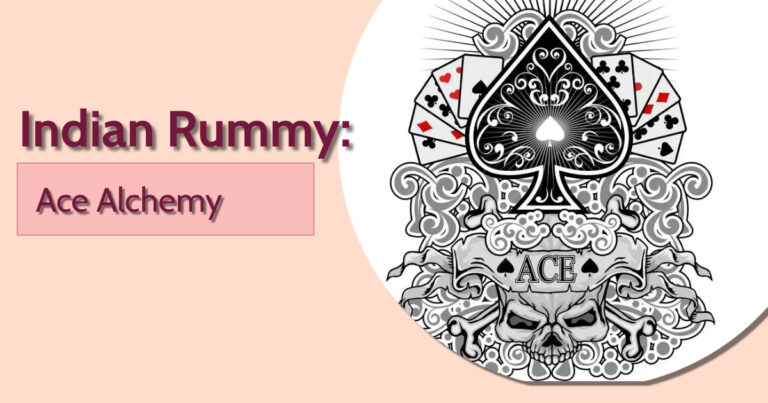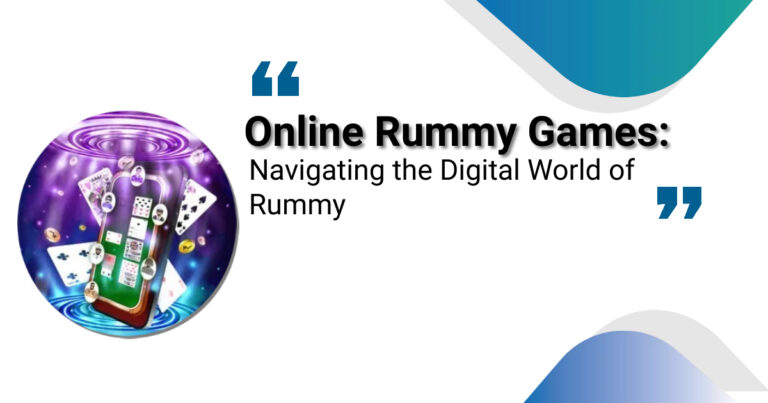Exploring the Growth of Live and Online Poker Rooms in India
Over the past decade, India has witnessed a remarkable transformation in its gaming landscape, particularly in the domain of skill-based games like online poker. Once considered a niche or underground hobby, poker has gradually moved into the mainstream—thanks to the rise of online platforms, increased internet penetration, and changing social attitudes toward gaming, the best rummy game options are now more accessible and widely accepted than ever. Today, live and online poker rooms are thriving across India, reflecting a new era of entertainment, competition, and opportunity.

A Historical Glance: The Slow Start of Poker in India
Poker’s journey in India started off slowly. For a long time, card games were largely confined to social settings like family gatherings or private parties. Games like Teen Patti Stars and Rummy were more culturally entrenched, and poker was seen as a foreign or Western game, not widely understood by the general population.
However, the global popularity of poker—especially Texas Hold’em—began to influence urban Indian players in the late 2000s. This coincided with increased access to international television coverage of poker tournaments like the World Series of Poker (WSOP) and World Poker Tour (WPT). Enthusiasts began to view poker not just as a pastime but as a game of skill, strategy, and intellect.
Legal Landscape and Skill Recognition
A crucial turning point for poker in India came when several courts, including those in Karnataka and West Bengal, ruled that poker is a game of skill rather than chance. This distinction is significant because Indian law permits games of skill, even when played for money.
Different states in India interpret gaming laws differently, and gambling remains prohibited in many regions. However, these rulings opened the door for poker to gain legitimacy. As a result, entrepreneurs began launching poker platforms and hosting live poker events with more confidence.
The Rise of Online Poker Rooms
The explosion of digital infrastructure in India has played a pivotal role in boosting the online poker industry. With over 850 million internet users, a growing young population, and affordable smartphones, India is an ideal environment for online gaming.
Key Drivers Behind Online Poker Growth:
- Smartphone Penetration: Mobile-first platforms have made poker accessible to a wide audience, enabling players to enjoy games from the comfort of their homes.
- Digital Payments: With the success of UPI, digital wallets, and other fintech innovations, online poker rooms have streamlined deposit and withdrawal processes, enhancing user convenience and trust.
- Marketing and Celebrity Endorsements: Brands like Adda52, Spartan Poker, PokerBaazi, and PokerStars India have invested heavily in marketing campaigns, often involving celebrities and influencers to broaden their appeal.
- Tournaments and Leaderboards: Frequent tournaments with attractive prize pools and leaderboards have added a competitive element that keeps players engaged.
- Responsible Gaming Tools: Reputed platforms have started incorporating responsible gaming features, such as deposit limits, time-outs, and self-exclusion options, to encourage safe play.
Popular Online Poker Platforms in India
Several platforms have emerged as key players in the Indian online poker scene:
- Adda52: One of the pioneers in the space, Adda52 was among the first platforms to gain massive popularity. It offers various poker formats and regularly hosts large-scale tournaments.
- PokerBaazi: Known for its professional approach and user-friendly interface, PokerBaazi has built a loyal user base and frequently runs promotional campaigns.
- Spartan Poker: With innovative offerings like “India Online Poker Championship (IOPC),” Spartan has gained attention for its big tournament prize pools and sleek design.
- PokerStars India: A global giant, PokerStars made its way into the Indian market through a partnership and quickly became a trusted name for serious poker players.
The Emergence of Live Poker Rooms
While online poker dominates in terms of accessibility and convenience, live poker rooms have carved a niche among enthusiasts who enjoy the social and tactile elements of in-person play. Major Indian cities such as Goa, Bengaluru, and Mumbai have become hotspots for live poker action.
Goa – The Poker Capital of India
Goa deserves special mention as it is home to India’s most vibrant live poker scene. Legalized casinos on floating ships along the Mandovi River, such as Deltin Royale and Casino Pride, offer dedicated poker rooms. These venues host regular cash games and tournaments, often drawing players from across the country and even abroad.
Bengaluru and Mumbai
In cities like Bengaluru and Mumbai, poker clubs operate as private membership-based institutions. These clubs focus on maintaining legal compliance by ensuring that games are skill-based and free from external betting or gambling activities. The environment in these clubs is more exclusive and community-driven, attracting serious players who value competition and camaraderie.
Poker as a Profession
The evolving poker ecosystem in India has given rise to a new breed of professional players. These individuals treat online poker as a serious endeavor, akin to chess or stock trading. Many of them have received international recognition and sponsorships..
Players like Aditya Agarwal, Nikita Luther, and Muskan Sethi have put India on the global poker map. Their success has inspired younger players to consider poker not just as a hobby, but as a viable career option—especially when supported by disciplined bankroll management, study routines, and ethical gameplay.

Challenges in the Path of Growth
Despite the upward trajectory, several challenges continue to hinder the full potential of poker in India:
- Legal Uncertainty: Since gaming laws are state-specific, what’s legal in one region might be banned in another. This regulatory ambiguity prevents uniform growth.
- Social Stigma: For many, poker is still associated with gambling. Educating the public about its skill-based nature remains a work in progress.
- Lack of Infrastructure for Live Poker: Outside of a few cities, the country lacks well-organized and legal poker rooms. Many clubs still operate in legal gray zones.
- Taxation Policies: High taxation on poker winnings under the GST regime and TDS rules can dissuade casual and semi-professional players from participating in large stakes games.
The Future Outlook
The future of poker in India looks promising, as the game continues its journey from taboo to trendy, with both live and online segments poised for continued growth. Several trends are expected to define the next phase of development:
- Regulatory Clarity: A national-level gaming policy that recognizes and regulates skill-based games would bring much-needed clarity and boost investor confidence.
- Tech Advancements: The integration of artificial intelligence, augmented reality, and blockchain could enhance online poker experiences, making them more secure and immersive.
- Educational Resources: As more players take the game seriously, demand for coaching, strategy content, and analytics tools is growing. Indian poker academies and content creators are stepping in to fill this gap.
- International Integration: Indian players are increasingly participating in global tournaments, and international platforms are showing interest in the Indian market. This cross-border collaboration could further elevate the standards of play and visibility of Indian poker.
Conclusion
The evolution of poker in India—from private living rooms to glamorous casinos and user-friendly online platforms—reflects a broader cultural and technological shift. While challenges persist, the game has firmly established itself in the entertainment in India and skill gaming landscape. Whether you’re a beginner exploring freeroll tournaments online or a seasoned grinder chasing high-stakes action in Goa, India’s poker ecosystem today offers something for everyone. As acceptance grows and the community matures, online poker is set to become a mainstay of the Indian gaming revolution.








